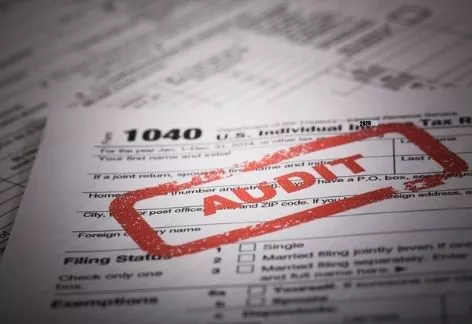If you’ve been approached by IRS Collections, you know how stressful it can be. However, you may have the opportunity to begin the collection appeal request process with IRS Form 9423.
If the IRS finds that you owe back taxes, and decides to begin its collection process, one of your only forms of recourse is to create an appeal request to halt or modify their enforcement procedures.
This is where IRS Form 9423 comes into play. It is the form you will have to fill out to begin the process for requesting an appeal of the collection process, to halt or modify the IRS’ different collection actions.
What is IRS Form 9423?
The Collection Appeal Request, or Form 9423, is used by taxpayers to request an appeal for liens, levies, seizures, and rejection, modification, or termination of installment agreements. In general, IRS Form 9423 allows a taxpayer to specifically appeal the following actions under what the IRS calls the Collection Appeals Program:
-
-
- A levy or seizure action that has or will occur.
- A tax lien that has or will be filed.
- Filing a tax lien against an alter-ego or nominee’s property.
- Denial of requests for lien modifications, specifically discharge, non-attachment, withdrawal, or subordination.
- A rejected, modified, or terminated installment agreement.
- A rejected request to return levied property under accordance with IRC 6343(d) (premature/lifted levy).
- A rejected claim to return levied property under accordance with IRC 6343(b) (wrongful levy).
-
When filling out IRS Form 9423, you will be asked to provide identifying information, explain why you disagree with the collection actions the IRS has taken or plans to take, and provide your signature. The IRS will process your appeal request, and the Collection Office will halt collection until either your appeal is approved or processed and otherwise settled.
You cannot have a higher court review the resolution of the Collection Appeals Program once an appeal has been settled. But if the IRS rejects your appeal, you do have other options.
Understanding the Collection Appeals Process
The Collection Appeals Program is the means by which you can appeal a planned or taken collection action via the office responsible for that collection action. You do not begin a Collection Appeals Program with the Independent Office of Appeals, but with the office responsible for the collection actions you want to appeal.
A tax professional can help you fill out IRS Form 9423 and communicate with the office in question, to ensure that your appeal gets the attention it deserves.
Appealing a Notice of Federal Tax Lien
A Notice of Federal Tax Lien is a legal claim made by the government over your entire account. This means everything you own is temporarily put on hold until your debt is paid. The IRS doesn’t claim your home or your property but does limit your ability to sell assets or secure financing. In practice, this means that another creditor or debtor cannot supersede the IRS’ claim over your property.
This can massively reduce your financial options, until the tax lien is lifted. You can request a lien certificate to limit the lien’s effect over a specific property or debtor in order to repay your debt. If the IRS rejects your request for lien certification, or you find the lien to be unwarranted/premature, you can make an appeal.
Appealing a Notice of Intent to Levy
A levy is a physical claim of a property or account for the fulfillment of a tax liability. The IRS can claim an asset like a parcel of land and sell it for its quick sale value. It can then use that money to cover your debt and either sending you the remainder or issue another levy for your outstanding tax liability.
If you can prove that your property was levied and/or sold prematurely, or that the levy was filed falsely, you can file an appeal to be reimbursed or to undo the levy.
Appealing an Installment Agreement Change
Installment agreements are necessary when paying the IRS back in anything other than a single lump sum. If you fail to make a payment, the IRS may cancel the agreement, and resume collection actions against your account. You can appeal this decision if you provide reasonable cause for your late payment.
If the IRS rejects your installment agreement request, it may be due to low income. You can appeal this and explain that you will be able to pay despite previous income issues.
If the IRS modifies your installment agreement, it’s usually because your income has increased (fewer, but bigger monthly dues). You can appeal against a modification of your agreement if you do not agree with it.
Collection Appeals Program and Collection Due Process Hearings
The Collection Appeals Program is separate from a Collection Due Process hearing. CDP hearings are launched through the IRS’ Independent Office of Appeals, through a Form 12153, functioning as an alternative way to keep the government from making a move on your property or tax account if you fear a lien or levy, or have been affected by a lien or levy. There is a 30-day deadline for filing a Form 12153 after receiving a notice of a collection action.
As with the Collection Appeals Program, you have to provide a good explanation for why the IRS shouldn’t move in on your tax account – from financial distress to a wrongful lien or levy, given the right evidence.
The main difference between the Collection Appeals Program and the Collection Due Process hearing is that a CDP hearing goes through the Office of Appeals, while the CAP goes through the Collection Office handling your tax account. CAPs can be used to challenge changes in a taxpayer’s installment agreement, while CDP hearings cannot. Unlike a CAP decision, a taxpayer can appeal to the US Tax Court if they do not agree with the decision of the Independent Office of Appeals.
Should You Request Participation in a Collection Appeals Program?
As with any appeal made to the IRS, it’s only best if you have good cause. The simplest and most common reason to appeal to the IRS is that you do not have the means to pay your back taxes due to disability, high medical costs, lack of income, or terminal illness.
In other cases, you may find evidence that the IRS made a simple error when calculating your taxes or issuing a premature collection action, such as not following the proper procedure when filing a Notice of Federal Tax Lien.
If you attempted to file a lien certificate of subordination, discharge, or withdrawal, and were refused, you can work with a professional to appeal the IRS and explain why you meet the requirements for a lien certificate.
You can also file an appeal when aiming to convince the IRS that releasing a lien or reversing a levy assists you in paying your back taxes (for example, by allowing you to use your property to secure financing for your debt).
In most cases, the Collection Appeals Program is a taxpayer’s only hope after their Collection Due Process rights expire.
Working With the Right Team
When seeking help or representation for the Collection Appeals Program (or a Collection Due Process hearing), it’s important to turn to the right people.
You can seek representation from an attorney, a certified public accountant, or an enrolled agent. Regardless of who you choose to represent or help you, always look for a tax professional.
We at Rush Tax Resolution pride ourselves on being upfront and realistic with our clients, while providing optimal outcomes. Certain tax situations can be especially difficult to navigate and having the right team in your corner can make all the difference in the world. Give us a call today.

